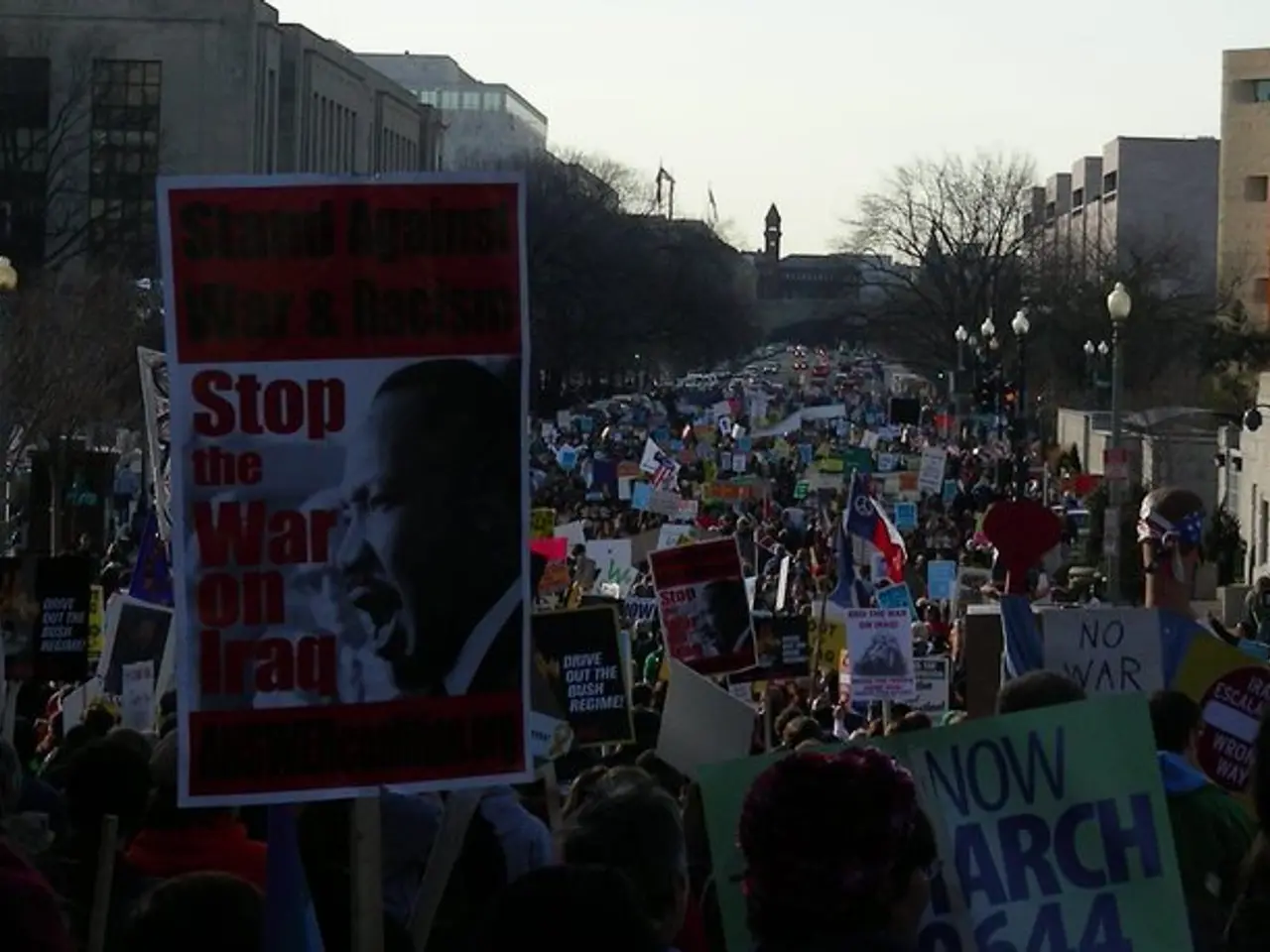Protests and disturbances in France on the day of the anti-Macron demonstration
France in Turmoil: Widespread Protests and Strikes Against Macron's Policies
France is experiencing a wave of protests and strikes, with thousands of people taking to the streets across the country in opposition to President Emmanuel Macron's austerity policies. According to the Interior Ministry, between 600,000 and 900,000 people are expected to participate in these demonstrations, making it one of the most widely followed days of union-led protests and strikes since a months-long mobilisation in early 2023.
The rallies, which have been marked by sporadic clashes with the police, have caused widespread disruption. Public transport in Paris has been severely affected, with only three driverless automated lines working normally. Commuters have faced significant disruption, and schools have been closed in many areas.
One of the main concerns of the protesters is the draft 44-billion-euro cost-saving budget of Macron's predecessor, Francois Bayrou. Many people are angry about the government's taxation policies, with Samuel Gaillard, a 58-year-old garbage truck driver, stating that the aim of the protests is to show the government that they are fed up with being heavily taxed and having trouble making ends meet.
The appointment of Prime Minister Sebastien Lecornu, Macron's seventh head of government, has not calmed the anger of unions and many French people. Lecornu, a 39-year-old former defense minister and close Macron ally, has vowed a break from the past to defuse a deepening political crisis. However, his efforts have not yet succeeded in quelling the unrest.
The trade unions have reported thousands of strikes across various workplaces, with nine out of 10 pharmacies shuttered due to the strikes. In some cities, such as Lille and Marseille, early morning union-led actions have blocked bus depots and led to clashes with the police. In Lyon, a France TV journalist and a police officer were injured during clashes between police and a group of masked youths.
In Paris, the police chief, Laurent Nunez, expressed concern about the risk of rioters infiltrating the union march and urged shops in the center to close for the day. Nunez's concerns were not unfounded, as in Marseille, an AFPTV reporter filmed a policeman kicking a protester on the ground.
The protests have been led by various trade union leaders, with Claire Lejeune leading a protest march in Paris on Wednesday. According to the Interior Ministry, approximately 100,000 demonstrators were involved in the march. Sophie Binet, leader of the CGT union, stated that there were 260 demonstrations across France.
The hard-left firebrand, Jean-Luc Melenchon, declared in Marseille that the president is the source of chaos and that everything happening is the result of Macron's actions. Melenchon's comments highlight the deep-seated anger and frustration felt by many French people towards the government's policies.
As of Thursday noon, more than 76,500 people had already taken to the streets. The protests so far have been 'less intense than expected,' according to Interior Minister Bruno Retailleau. However, the government will need to find a solution to address the concerns of the protesters if it wants to avoid further unrest in the future.







